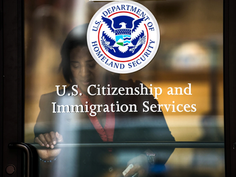Tougher Laws Erode Australians Right to Protest Climate Activists Jailed
- Indu Hansana

- Jul 14, 2024
- 2 min read
By I. Hansana, Jadetimes News

Growing Concerns Over Anti Protest Laws in Australia
Brad Homewood recalls his intimidating experience upon entering a maximum security facility, where he served the first three weeks of a two month sentence. He describes the environment as filled with violence, although he did not personally encounter any during his stay.
Homewood and his partner, Deanna "Violet" Coco, were arrested for using a truck to block three city bound lanes of the West Gate Bridge in March, displaying a sign that read "climate breakdown has begun." They pleaded guilty to public nuisance and obstructing police, leading to their release in May. Recently, two other protesters, both 21, received similar sentences under New South Wales' stringent anti protest laws.
Laura Davy disrupted operations at the Port of Newcastle and was sentenced to three months in prison, a ruling she is currently appealing. This situation is part of a broader trend, with increasing numbers of Australians facing criminal charges for protests, as highlighted by the Human Rights Law Centre (HRLC) in their report titled Protest in Peril, which claims these laws undermine the fundamental right to protest.
The report indicates that 49 anti protest laws have been enacted in the past two decades, particularly targeting climate activists. For example, New South Wales has implemented some of the harshest laws, allowing penalties of up to two years in prison and fines of $22,000 for blocking major facilities. The report also reveals a worrying expansion of police powers to dismantle protests and the use of stringent bail conditions.
Protest groups, such as Blockade Australia, have been a significant catalyst for these laws. The legislation not only affects environmental activists but has also led to arrests in other movements, such as the recent arrests of 19 pro Palestine protesters.
Many protesters have received fines ranging from $750 to $1,500, reflecting a more common response from the legal system. Lydia Shelly, president of the NSW Council of Civil Liberties, notes that most judges recognize the importance of protest in a democracy.
Despite their initial sentences being increased after causing disruption, Homewood and Coco remain determined in their activism. Shelly raises concerns about the “scandalous” use of bail conditions, which she argues inhibit the ability of protesters to organize effectively.
Conditions imposed on protesters often include frequent reporting to police stations and restrictions on associating with other activists. Critics argue that these bail conditions erode the right to protest, a sentiment echoed by HRLC's senior lawyer David Mejia Canales.
The NSW government is currently reviewing these anti protest laws in response to pressure from over 40 organizations. The review process will be public and open to community input, especially after a recent court ruling deemed parts of the laws invalid.
Homewood is preparing for upcoming court appearances related to his activism, indicating a steadfast commitment to his cause. "We’re as committed as we’ve ever been," he asserts, emphasizing the stakes involved in their struggle for climate action.











































Comments